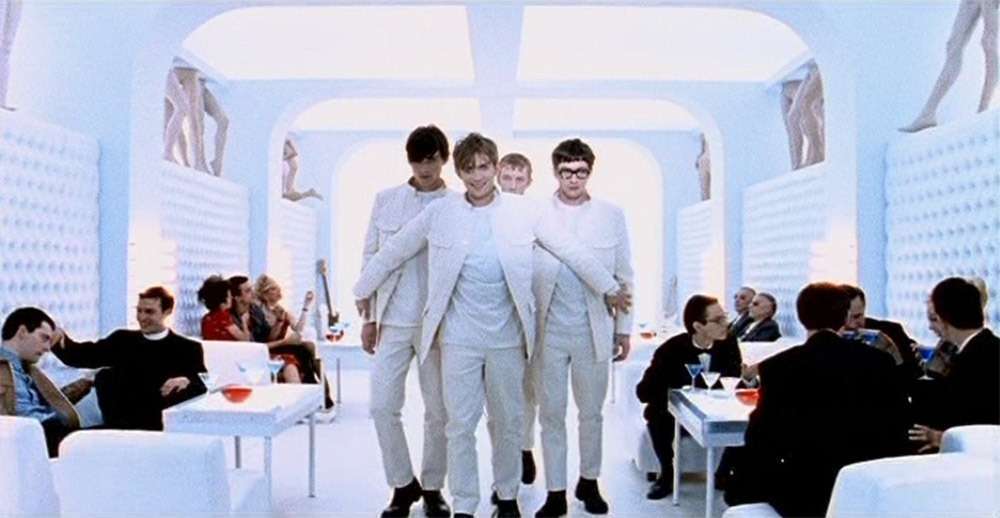Song Stories: Blur: The Universal
"The Universal" stands out as one of the most profound songs in Blur's discography. Released in 1995 as the second single from their third and final album of the life trilogy, "The Great Escape" the song is more of the most important of the Britpop genre, and one of the best songs the band ever released.
Right from the opening strings, The Universal feels like a grand, cinematic experience. The track begins with a swirling orchestral arrangement that could easily accompany the opening credits of a vintage science fiction movie. This isn’t accidental—Blur were consciously aiming for a larger-than-life feel. The grandiosity of the instrumentation reflects the weight of the themes the song grapples with: disillusionment, escapism, and the paradox of modernity.
Damon Albarn’s voice carries a melancholic, almost resigned tone as he croons the opening line: “This is the next century, where the universal’s free.” It sets the stage for a commentary on consumerism and the false promises of an increasingly digitized and interconnected world. Albarn wrote the song under the influence of Prozac, and was thinking about being in a dream like state. Whilst also dealing with the things he was seeing in the modern world that was taking shape around him.
While on the surface, the lyrics may appear optimistic, they are underpinned by a sense of irony and skepticism. Lines like “It really, really, really could happen” initially sound like a hopeful mantra, but in context, they seem to express doubt or even fear. Some have commented that the song was written in response to the National Lottery which launched in 1994. "It Could Be You" which features on "The Great Escape" was definitley written about the National Lottery.
However I believe the song has more to do with Prozac and the idea of being controlled by a little magic pill. Albarn writes about a society where instant gratification and endless distraction is now the norm. Technology is taking over, and the idea of what was once dystopian is now becoming very real.

The accompanying music video for The Universal is a work of art in its own right. Directed by Jonathan Glazer, it draws inspiration from Stanley Kubrick’s A Clockwork Orange. The band members are dressed in stark white outfits, reminiscent of the droogs in the film, while Albarn takes center stage with his unsettlingly calm demeanor. The setting—a sterile, futuristic lounge—reinforces the dystopian aesthetic.
The video’s surreal quality amplifies the song’s themes, portraying a world where people are placated and numbed by technology and escapism.
The Great Escape marked a turning point for Blur, both in their career and their artistic trajectory. The album was seen as the last installment in their Britpop trilogy, following Modern Life Is Rubbish and Parklife. However, where Parklife celebrated the quirks and idiosyncrasies of British culture, The Great Escape delved into its darker undercurrents. The songs on this album often carry a sense of unease and disillusionment, and The Universal serves as its centerpiece a reflective moment amidst the chaos.
Since it's release the band have come to dislike "The Great Escape" and have come to associate it with the "Battle of Britpop" and their rivalry with Oasis. However the band have continued to play "The Universal" within their shows, usually as the final song of the evening. It's one of the special live moments, filled with raw emotion, where audience and band work in tandem, to create something truly breathtaking.